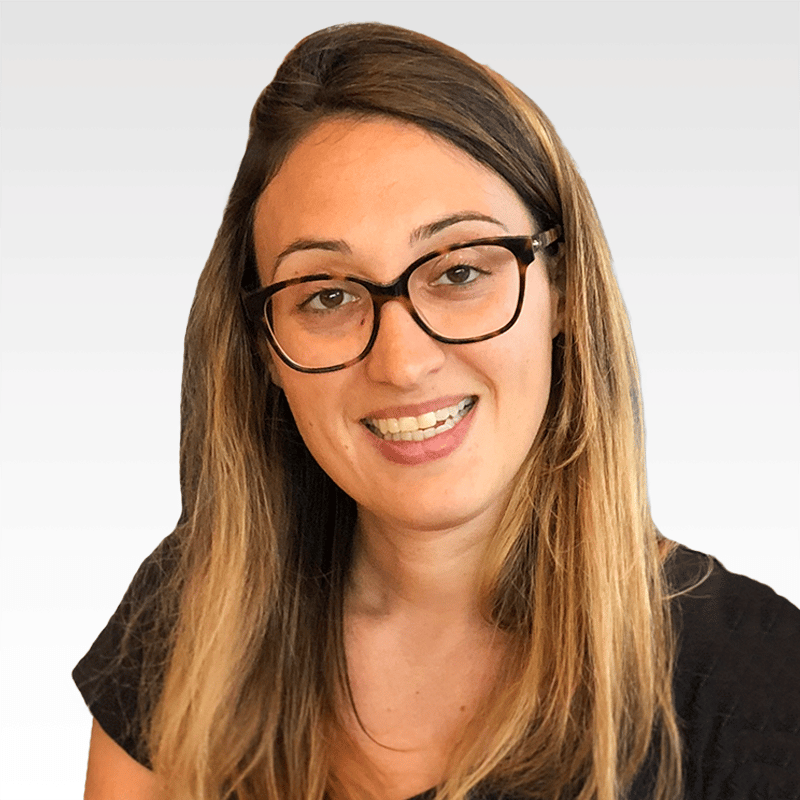Join the speakers as they share their experiences and insights on the key aspects of selection and analysis in clinical trial endpoints, including recent US Food and Drug Administration Digital Health Technology (FDA DHT) guidance and Clinical consortia collaboration on digital outcome measures, data quality management and the expanding role of wearable technology devices in decentralized and hybrid trials.
Speakers

Kristen Sowalsky, PhD, DC
Director, Clinical Science and Consulting at Clario
Dr. Sowalsky leads the scientific consulting services team for Precision Motion at Clario. With an advanced background in applied neuromechanics, kinesiology and exercise science, including six years as a provider in clinical practice, she consults with clinicians, researchers and product technologists providing scientific evidence and advice to sponsors and CRO’s on meeting clinical trial study objectives. Dr. Sowalsky’s academic achievements include a BS in kinesiology and exercise science from Appalachian State University, Doctor of Chiropractic from Logan University and a PhD in applied neuromechanics, from the University of Florida.
Passionate about improving the lives of patients and their families, Dr. Sowalsky continues to build the body of evidence for precision motion monitoring measures of PerfO to capture clinically meaningful digital mobility outcomes to inform therapeutic innovation and development.

Fay Horak, PhD, PT
Chief Scientist, Consulting at Clario
Dr. Horak is an internationally recognized physical therapist, neuroscientist and author on all aspects of digital outcome measures related to mobility. Concurrent with her role as Chief Scientist, consulting at Clario; Dr. Horak holds the Jay Nutt MD endowed chair as a Professor of Neurology, Behavioral Neuroscience and Bioengineering and is Director of the Balance Disorders laboratory at the Oregon Health and Science University School of Medicine.
Dr. Horak studies neurological disorders that affect balance and gait in the elderly, people with Parkinson’s disease, multiple sclerosis, cerebellar ataxia, vestibular injury or disease, diabetic neuropathy and back pain.
She is the recipient of numerous awards from the American Physical Therapy Association and is the first physical therapist to receive the prestigious MERIT award from the National Institutes of Health recognizing over 30 years of continuous funding. Dr. Horak earned a BS from University of Wisconsin, an MS from University of Minnesota and a PhD from University of Washington.

Martina Mancini, PhD
Expert Consultant, Parkinson’s Disease, Consulting at Clario
Dr. Martina Mancini studies how to improve everyday functional mobility and prevent falls with rehabilitation interventions by investigating the pathophysiology of motor impairments and objectively characterizing them with new technologies.
Using a variety of body-worn sensors to characterize movement (i.e., EMG, inertial sensors) and brain activity, this line of research helps determine how the central nervous system integrates sensory information in healthy individuals and those with movement disorders, with a particular focus on Parkinson’s disease. These novel, objective metrics of movement, combined with neurophysiological information, determine optimal variable(s) to integrate with biofeedback, resulting in more effective rehabilitation interventions.
In addition to her consulting role at Clario, Dr. Mancini is an Adjunct Assistant Professor, Department of Biomedical Engineering, at Oregon Health and Sciences University. She earned her BSc in biomedical engineering, MSc in biomedical engineering and PhD in biomedical engineering at the University of Bologna, Italy.

Diane Stephenson, PhD
Critical Path Institute
Dr. Diane Stephenson, a neuroscientist by training, combines 30 years’ experience in academic neuroscience and drug discovery.
Passionate about translational science, she is dedicated to the discovery of therapies to treat diseases of the nervous system. Dr. Stephenson’s research focuses on amyotrophic lateral sclerosis and Alzheimer’s disease. Her industry work prioritizes discovery for Alzheimer’s disease, stroke and Parkinson’s disease. Dr. Stephenson has over 55 scientific publications and six patents in the neuroscience area. Her technical expertise includes neuroimaging, neuropathology and animal model characterization.
As an ambassador for public-private partnerships, she has initiated numerous external academic collaborations including worldwide alliances. Dr. Stephenson received her undergraduate degree in biochemistry at the University of California, Santa Barbara and her PhD in medical neurobiology from Indiana University. Currently, Dr. Stephenson leads multidisciplinary teams of academic experts, industry scientists, patient advocacy groups and regulatory experts collectively aimed at accelerating treatments for patients with neurodegenerative diseases.

Madhura Ingalhalikar, PhD
MRI Scientist, Neuro Medical Affairs at Clario
Dr. Ingalhalikar is an expert in MR Neuroimage acquisition, processing and analysis.
Her clinical trial work on imaging endpoints targets the development of novel techniques in diffusion MRI analysis and connectomics, neuro-radiomics and AI-based analysis applied to Parkinson’s disease, multi-system atrophy, Duchene’s muscular dystrophy, autism and brain tumors. Dr. Ingalhalikar received a PhD in biomedical engineering from the University of Iowa, with a keen focus on method development for deformable registration of diffusion tensor images. At her post-doctoral fellowship at the University of Pennsylvania, department of radiology, she progressed from the diffusion MRI to connectomics and machine learning for neuro-image analysis.
Dr. Ingalhalikar is an early founder of Symbiosis Center for Medical Image Analysis, and a five-year faculty member of Symbiosis International University. She has authored over 50 high impact research papers and serves as Associate Editor of the Journal of Neuroradiology, the official publication of the French Society of Neuroradiology.
Who should attend?
- Clinical Operations teams: regulatory, compliance, medical affairs
- R&D Innovation group members, Directors of Biometric Data and Biostatistics
- Protocol Development team & Regulatory Submission strategists
- Therapeutic Area/Global Development teams for neuromuscular/movement disorder — primarily Parkinson’s disease
- Indications Global Development teams for clinical programs for multiple sclerosis, ataxias, ALS, muscular dystrophy
- HEOR data teams
What you will learn
Attendees will:
- Understand current environment and practical applications of precision motion approaches & sensor-enabled instrumented tests to measure performance outcome clinical outcome assessments for Parkinson’s Disease
- Understand how performance outcome assessments of functional mobility can provide insights on the patient-reported Quality of Life impact and clinically meaningful outcome measures in Parkinson’s disease trials
- Understand the selection and use of key imaging modalities & correlated clinical trial endpoints in Parkinson’s Disease evaluation
- Understand considerations in device-generated data and analytics to support endpoint evaluation
